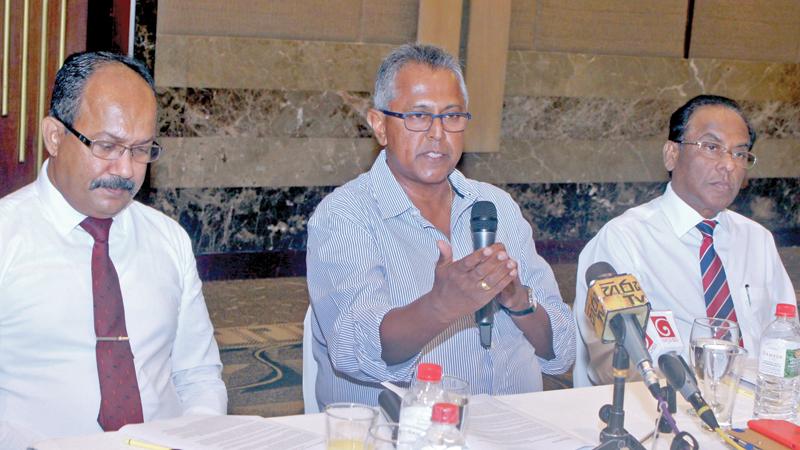
Repealing the Tourism Act is an insult to the pioneers who shed their sweat and tears to develop the industry, said officials of the Sri Lanka Association of Inbound Tour Operators (SLAITO) and The Hotels Association of Sri Lanka (THASL) on Thursday.
The move to amend the Act which is totally unwarranted rebuffs the good work done by the forefathers of the tourism industry, said Tourism Advisory Committee Chairman Hiran Cooray.
SLAITO and THASL called for a media briefing last week to voice their concerns on the overpowering attitude of the Sri Lanka Tourism officials to hurriedly repeal the 2005 Tourism Act. Officials of the two well-known organisations of the tourism industry said it is not the time to replace the Act when the whole industry faces enormous challenges to survive.
The focus right now by the authorities and all stakeholders is to bring in the much needed foreign exchange to the country by promoting the destination and attracting more visitors to the country, SLAITO Immediate Past President Mahen Kariyawasan said.
Senior industry officials said the regulator must give priority to get the global tourism promotion campaign off the ground rather than wanting to amend the Act.
The tourism industry has been against amending the Act as it does not reflect the recommendations made by the private sector.
Representatives of both bodies said that the tourism industry regulator had mixed up priorities which does not go well to support the industry that has been battered by repeated shocks since the Easter Sunday terror attacks.
They said the change to the Act will give immense and excessive powers to the regulator and other government officials on many matters including acquisition of land with clear protection for members of the authority with immunity against prosecution.
THASL President M. Shanthikumar said tourism authorities must collaborate closely with the private sector to bring business back to the country as quickly as possible allowing the country to earn the much needed foreign exchange. The change in the Tourism Act will not result in a single dollar entering the country but rather would grant the authority limitless powers over a large quantum of funds available at present in the boards, Shanthikumar said.
“The Secretary of the Tourism Ministry originally misled the industry by claiming that the reform was included in the Government’s manifesto ‘Sahubagya Dekma’. We now discover that nothing of that sort is contained in the manifesto,” he said.
In response, the Tourism Minister called for a private sector proposal for reforms which was given and promised to include in the revisions, SLAITO President Thilak Weerasinghe said.
However, the draft Act does not include any of the sector’s recommended reforms in its entirety, he said.
“We submitted proposals to Minister of Tourism Prasanna Ranatunga and Secretary to Tourism S. Hettiarachchi last year,” SLAITO and THASL officials said.
However, there had neither been discussions nor consultations on the changes to the Act which now in its final form is being presented to the legislature.
A grouse of the industry is undermining long standing bodies of the tourism industry in the composition of the Board of Directors paving the way for personnel of peripheral organisations to enter the boards.
The industry noted that no Government had considered the merger with the private sector or taken any step to make modifications. There were no proposals or documents submitted to the private sector in this regard, as is the case currently.
“Under the Yahapalana regime a minister had indicated unequivocally that he had no intention of merging the four boards which contradicts what we are hearing from the regulator today.
“Prior to 2005 there was only one board, the Ceylon Tourism Board, which was completely ineffective in dealing with the dynamics of the tourism industry. Tourism investors from the private sector at the time discussed and debated and volunteered to contribute 1 percent of the earnings to promote and develop the industry with a public private sector partnership to compete with the rest of the emerging destinations with a focus on the four key disciplines of the industry by creating four separate boards with the distribution of the above funds,” he said.
There are many pressing issues at present and the tourism industry now believes that the hasty amendment to the Tourism Act is due to the regulator and directors of the tourism industry being involved in numerous legal cases and certain clauses in the new Act clearly provides immunity to the said parties on these issues.
